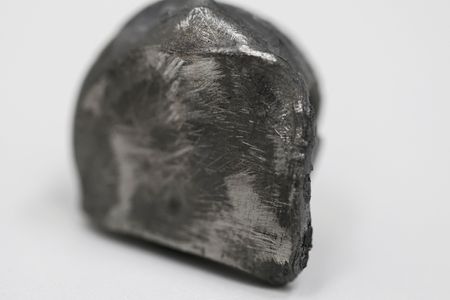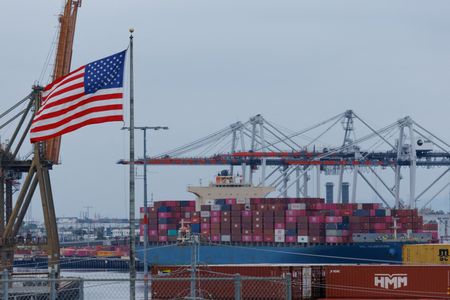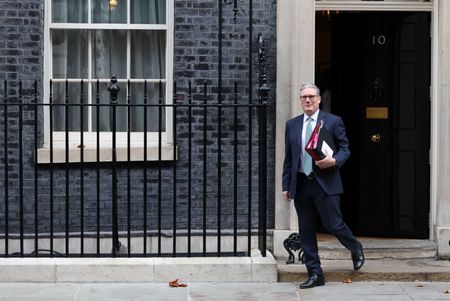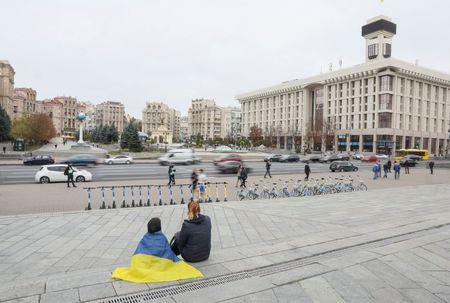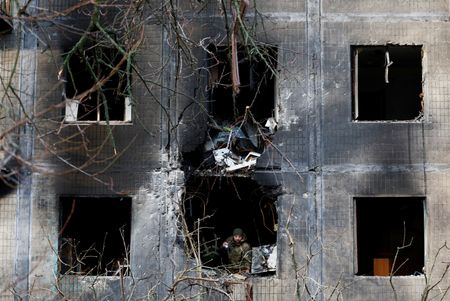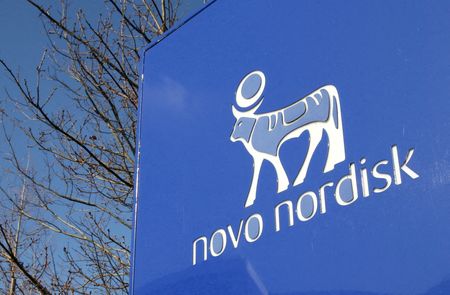By Lewis Jackson, Allison Lampert, Fanny Potkin and Ernest Scheyder
BEIJING/MONTREAL/SINGAPORE/HOUSTON (Reuters) -Global supplies of the rare earth element yttrium are running low due to Chinese export restrictions, sparking fears of shortages and surging costs that could hit aerospace, energy and semiconductor production.
China, the main source of the element used in speciality alloys found in engines as well as coatings to shield against high temperatures, restricted exports along with six other rare earths in April in retaliation for U.S. tariffs.
While a high-stakes meeting last month between U.S. President Donald Trump and Chinese President Xi Jinping had raised industry hopes for a more reliable flow of critical materials, the dispute has not been fully resolved.
So while China has since paused some of its rare earth restrictions, its April controls remain in place, raising questions about access for U.S. industry in the absence of a comprehensive deal between Washington and Beijing.
The controls, which require exporters to obtain licences from Beijing, have made it hard to get yttrium out of China, according to four rare earth traders and Argus analyst Ellie Saklatvla.
The licences issued thus far have been for small shipments and there are still long delays getting material delivered, Saklatvla said.
‘SCRAMBLE FOR YTTRIUM’
“China’s export controls have undoubtedly prompted a scramble for yttrium that continues several months on,” Saklatvla said.
European prices for yttrium oxide, used to make heat-shield coatings, are up 4,400% since January at $270 a kilogram, Argus data showed. Chinese prices, around $7 per kilogram, are 16% higher over the period but falling, according to the data.
U.S. trade group Aerospace Industries Association said yttrium was essential to the world’s most advanced jet engines and it was working with Washington to expand domestic supply.
“At present, our supply chain depends heavily on imports from China — a reliance that has contributed to rising costs amid growing shortages,” said Dak Hardwick, AIA’s vice president, international affairs.
Shortages are also a major concern for the semiconductor industry, where yttrium is used as a protective coating and insulator, two industry sources said. One described it as a “9 out of 10” in severity.
Richard Thurston, CEO of Great Lakes Semiconductor, said yttrium shortages would lengthen production times, raise costs and make equipment less efficient, though immediate shutdowns were unlikely. Problems are likely to be worse for the larger producers, he added.
“Shortages will increasingly become a real chokepoint,” he said.
In addition to aircraft engines and semiconductors, yttrium coatings are used in gas plants to protect turbine blades from high temperatures.
Major producer Mitsubishi Heavy said its gas turbine business faced no issues at present from China’s expanded rare earth export controls.
Siemens Energy CEO Christian Bruch said the company was working to diversify itself away from Chinese rare earths in general but it would take time to do so.
“So far, we have not seen any direct impact on our supply chains. We are monitoring the situation with concern, but it is still manageable for us at the moment.”
GE Vernova did not respond to questions.
STOCKS OUTSIDE CHINA
China’s yttrium exports to the U.S. began slowing early this year before stopping altogether after the April controls, customs data through September showed.
Exports to the rest of the world are down about 30% over the same period, but supplies are unlikely to flow to the U.S. because companies or traders are concerned China could restrict their own shipments in retaliation, said a yttrium trader.
The yttrium market is opaque and information about stocks outside China varies. Six industry sources gave estimates ranging from one to 12 months of consumption. Several said reserves likely varied widely by company.
A rare earth trader, declining to be named due to the sensitivity of the matter, told Reuters that their stocks had fallen to 5 tons from 200 tons. Another said they were out of stock.
Two aerospace industry sources said yttrium prices were rising, but the shortfall had not disrupted production.
Mark Burns, president of U.S. Gulfstream Aerospace, told Reuters that the business jet maker had limited exposure to yttrium.
“I have heard the discussion, but only on the perimeter. Nothing that impacts our deliveries at this point,” he said.
ALTERNATIVES
The U.S. imports all of its yttrium, with 93% coming directly from China and the remainder made from material that was first processed in China, the U.S. Geological Survey said in a January report.
That could soon change thanks to ReElement Technologies, based in Indiana, which plans to start producing yttrium oxide at a rate of 200 tons per year, or about 16 tons a month, by December, before rising to 400 tons per year by March, CEO Ryan Jensen told Reuters.
The U.S. imported an estimated 470 tons of yttrium products in 2024, according to the USGS.
(Reporting by Lewis Jackson in Beijing, Allison Lampert in Montreal, Fanny Potkin in Singapore and Ernest Scheyder in Houston. Additional reporting by Laurie Chen in Beijing, Christoph Steitz in Frankfurt, Yuka Obayashi in Tokyo and Shivansh Tiwary in Bengaluru. Editing by Mark Potter)

